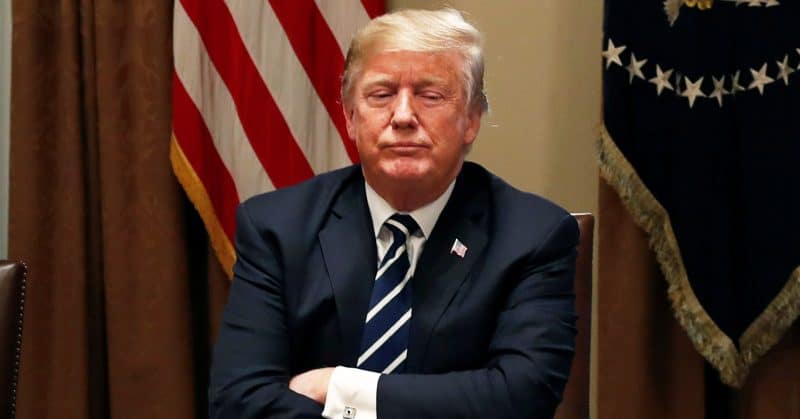In another day of deceptive and contradictory statements, Donald Trump swings back and forth over his support of Russian President Vladimir Putin in Monday’s Helsinki Summit.
On Monday, Trump endorsed Putin’s approach to international issues, offered not a single challenge on matters from Crimea to the Middle East to a suspected nerve agent attack in England, condemned the FBI, and chose the Russian leader over US intelligence agencies regarding Moscow’s interference in the 2016 American election.
On Tuesday, Trump tried to walk back the election choice by reading a statement that he meant to say “wouldn’t” rather than “would” over the Russian interference. However, he watered down the text with impromptu remarks that “other people” might be responsible for hacking and dissemination of stolen material to damage Democrat nominee Hillary Clinton. And he scribbled across his text, “THERE WAS NO COLUSION [sic].”
On Wednesday, when asked if he believed Russia was still interfering in American elections, Trump said, “No.”
The rejection again contradicted the assessment of US intelligence agencies, including Director of National Intelligence Dan Coats’ statement that the Russian cyber-threat is equivalent to that of terrorists before 9-11.
By Wednesday night, Trump — possibly because he was pulled back again by White House staff — maintained in a TV interview that he had pressed Putin: “I let him know we can’t have this. We’re not going to have it, and that’s the way it’s going to be.”
Meanwhile, Trump’s Twitter blasts continued through the day. He started on a high, “So many people at the higher ends of intelligence loved my press conference performance in Helsinki.” But he quickly moved to a low:
Some people HATE the fact that I got along well with President Putin of Russia. They would rather go to war than see this. It’s called Trump Derangement Syndrome!
— Donald J. Trump (@realDonaldTrump) July 18, 2018
The White House tried to sweep away further damage from the conflicting statements. Press Secretary Sarah Huckabee Sanders declared that Trump’s “No” was about whether he would take questions during a Cabinet meeting, not about his belief in Russian interference.
Trump did maintain consistency in his denunciation of former US officials. He said in his TV interview that former CIA Director John Brennan — who said Trump was a “traitor” in his Monday performance — is a “total lowlife,” and suggested that former Director of National Intelligence James Clapper is compromised.
However, he tried to smooth over relations with Coats, who issued a statement immediately after the Helsinki press conference to reassert the intellilgence community’s assessment of the Kremlin and the US elections.
Trump said Coats is doing an “excellent job”: “He’s a great guy and a great patriot who loves his country, and he’s only going to say what he believes.”
—
Meanwhile, Trump is facing criticism from both Democrats and Republicans over his embrace of Putin’s offer for US officials to view Moscow’s questioning of 12 Russian military intelligence officers indicted last Friday for hacking and dissemination of anti-Clinton material — provided Russia can also interrogate several US citizens in its campaign against the UK-based financier Bill Browder.
On Monday, Trump praised the “incredible” proposal by Putin. But by yesterday, a Russian official was giving the names of the Americans who would be questioned, including former US Ambassador to Russia Michael McFaul and Kyle Parker, who drafted the Magnitsky Act imposing sanctions on Russia over human rights abuses.
The Kremlin has long sought punishment of Browder, who pursued the act named after Sergey Magnitsky, a Russian anti-corruption campaigner who was killed in police custody in November 2009.
McFaul said on Wednesday, ““What they’re doing is allowing a moral equivalency between a legitimate indictment of 12 Russian military intelligence officers for interfering in our election with a cockamamie, crazy story that it sounds like Putin spun to our president in Helsinki..”
A US diplomat summarized the concern over Trump’s conduct:
“It’s beyond disgraceful. It’s fundamentally ignorant with regard to how we conduct diplomacy or what that means. It really puts in jeopardy the professional independence of diplomats anywhere in the world, if the consequence of their actions is going to be potentially being turned over to a foreign government.”

